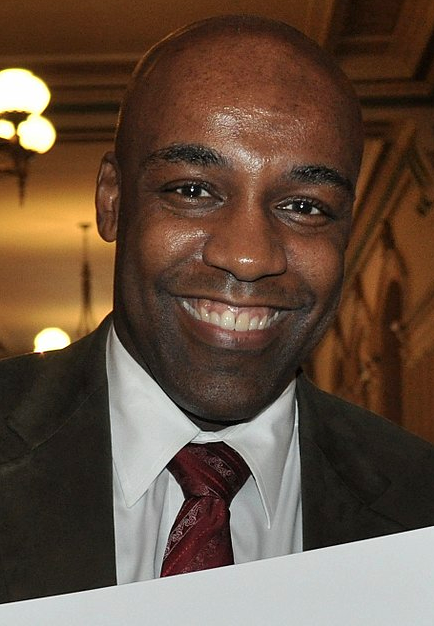
Chicago – Attorney General Raoul today joined a coalition of attorneys general, cities, counties and the bipartisan U.S. Conference of Mayors in taking legal action against the federal government’s latest attempt to impair the 2020 Decennial Census. Earlier this month, the U.S. Census Bureau announced that it was reducing — by an entire month, from Oct. 31 to Sept. 30 — the time in which self-response questionnaires will be accepted and door-to-door follow-ups by census enumerators will take place.
Get The Latest News!
Don't miss our top stories and need-to-know news everyday in your inbox.
In an amicus brief, filed in National Urban League v. Ross, Raoul and the coalition support the plaintiffs’ request for a nationwide stay or preliminary injunction to halt this Rush Plan. Raoul and the coalition argue that this expedited schedule will constrain the bureau’s ongoing efforts to conduct the census and will thus impair the accuracy of its enumeration of each state’s total population.
“A reduction in time for census self-response and door-to-door follow-up will lead to a substantial undercount, and it is imperative that the census accurately reflects the total population of every state,” Raoul said. “The census is fundamental to our democracy, and the federal government’s intentional efforts to ensure an inaccurate census will impact states for the next decade by depriving us of needed federal funding, fair representation in Congress and the proper number of Electoral College votes. I am committed to fighting continued unconstitutional attempts to undermine the integrity of the census.”
In today’s brief, filed in the U.S. District Court for the Northern District of California, the coalition of 23 attorneys general, five cities, four counties and the U.S. Conference of Mayors argue that amici have a direct stake in this dispute, as the decennial census determines the states’ political representation in Congress, provides critical data for states’ redistricting efforts, and affects hundreds of billions of dollars in federal funding to states and localities. An inaccurate census will directly impair those interests, inflicting harms that will persist for the next decade.
Raoul and the coalition also argue that the federal government’s efforts to reduce the time for both self-responses of the questionnaire sent to every household across the country, as well as non-response follow-up operations for those who don’t respond, will inevitably harm the accuracy of the population count. The shorter time period also goes against what the Census Bureau itself previously said was necessary to conduct an accurate count, as it alters the deadline that the bureau had adopted specifically to accommodate the unique difficulties posed by the COVID-19 pandemic.
In litigation over the citizenship question, a district court previously found that even a small undercount would raise a “significant risk of an apportionment loss” to Illinois and other states. Such a loss would deprive these states of political power in Congress for a decade, hampering their efforts to serve their residents and depriving them of the representation to which they are entitled. The undercount would also cause harm within states since census data is used for redistricting of state legislative seats as well.
Additionally, an undercount would affect hundreds of billions of dollars of federal funding that are dependent on the decennial census’s population count. In particular, at least 18 federal programs distribute financial assistance based in whole or in part upon each state’s relative share of the total U.S. population. Numerous other programs distribute funds based off of census data as well.
Raoul and the coalition also assert that the court should not view this Rush Plan in a vacuum. The defendants — the U.S. Department of Commerce Secretary Wilbur Ross, the Census Bureau and Census Bureau Director Steven Dillingham — have all repeatedly attempted to manipulate the census. Raoul previously joined a coalition of attorneys general in successfully challenging a prior attempt to add a citizenship question to the census, a case ultimately decided by the Supreme Court. In addition, Raoul and the coalition are currently challenging the federal government’s attempt to exclude undocumented immigrants from the population count that will be used for congressional apportionment. Raoul and the coalition highlight that all three of these efforts disregard unambiguous constitutional or statutory requirements, consciously deviate from centuries of consistent practice and fail to deal honestly with the public and the courts.
Joining Raoul in the amicus brief are the attorneys general of California, Colorado, Connecticut, Delaware, Hawaii, Maryland, Massachusetts, Michigan, Minnesota, Nevada, New Jersey, New Mexico, New York, North Carolina, Oregon, Pennsylvania, Rhode Island, Vermont, Virginia, Washington, and Wisconsin. The attorneys general are joined by the cities of Central Falls, R.I.; Columbus, Ohio; Philadelphia, Pa.; Phoenix, Ariz.; and Pittsburgh, Pa. Cameron, El Paso, and Hidalgo Counties in Texas; Howard County in Maryland; and the bipartisan U.S. Conference of Mayors joined the amicus brief as well.
More like this:
